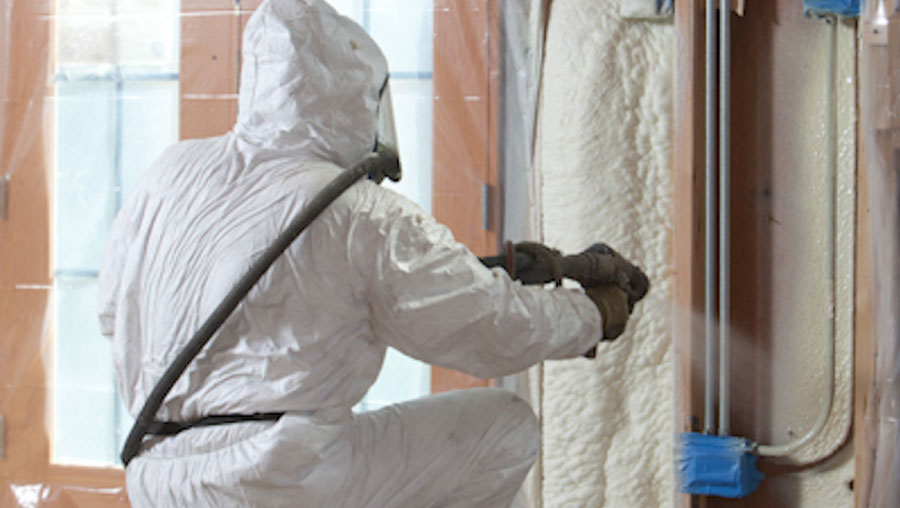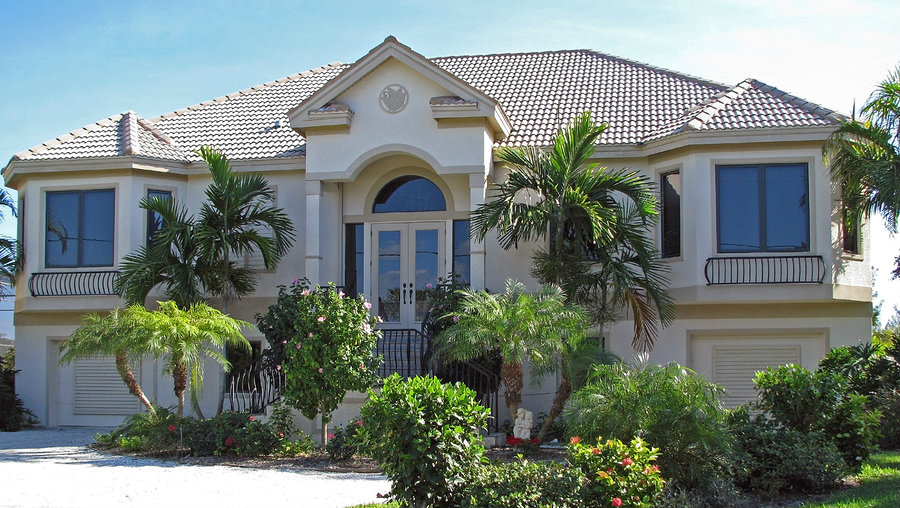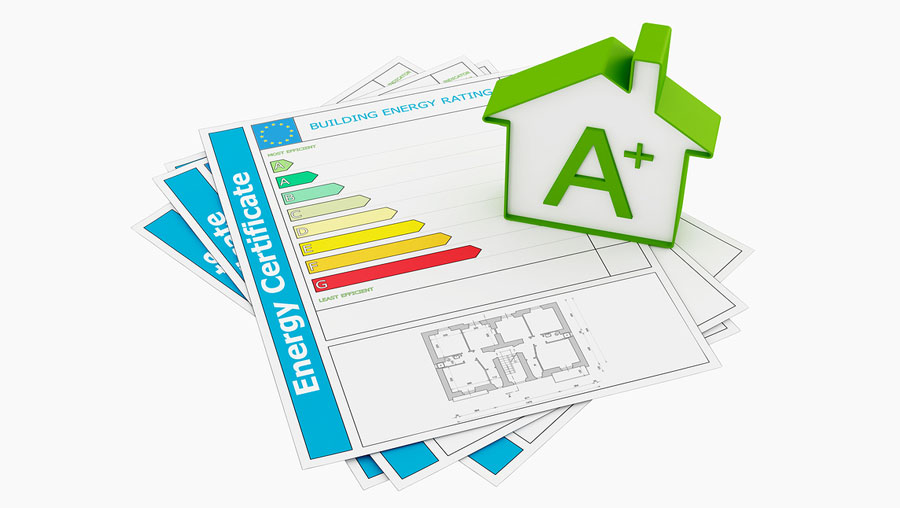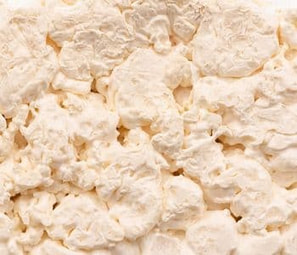 Have you ever wondered what those big white trucks are spraying into people's homes? It's insulation! More specifically, it's spray foam insulation. But what is it, and what is it made of? This article will take a closer look at spray foam insulation and find out what it's made of. What is spray foam insulation? Spray foam is a type of insulation sprayed onto walls, ceilings, and floors to insulate and seal a home or building. It prevents air and heat from escaping, making it much more energy-efficient than other types of insulation. Unlike other insulation materials, spray foam expands to fill gaps or cracks, making it an excellent choice for difficult-to-insulate areas. It also doesn't sag, compress or settle over time like fiberglass or cellulose insulation. That's not all. Spray foam insulation also:
Spray foam comes in two types: closed-cell and open-cell. While both create an effective insulation barrier, they have some key differences. Closed-cell spray foam has a higher R-value (resistance to heat flow), meaning it's much more effective at insulating your home in Orlando. It's also denser, making it more durable and resistant to pests and water damage. On the other hand, open-cell spray foam has a lower R-value, but it's much cheaper than closed-cell foam. It's also more breathable, making it a good choice for areas that need ventilation, like attics. So, what is spray foam insulation made of? The main ingredient in spray foam insulation is polyurethane. This polymer is made up of two chemicals, isocyanate and polyol resin. These two ingredients are mixed and sprayed through a nozzle, where they react and expand to create the foam. (1) Additives are added to the mix to control the foam's density, expansion rate, and other properties. Common additives include:
Now that you know what spray foam insulation is made of, you can see why it's such an effective way to insulate your home in Orlando. Not only does it expand to fill any gaps or cracks, but it also has a high R-value, making it excellent at preventing heat loss. So spray foam is a great option if you're looking for an insulation material that will do a great job at keeping your home warm. All Florida Insulation services Orlando, Windermere, Gotha, and Winter Garden, and wContacte appreciate the support of our communities. Call us at (407) 410-FOAM (3626) to request a free quote. Click to see all our services.
0 Comments
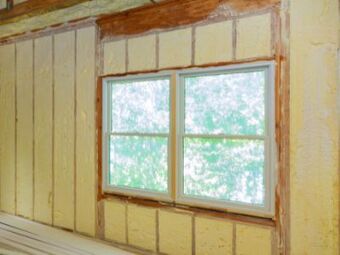 1. Eliminates Leaks Identifying and controlling water leaks in metal buildings is difficult and costly due to their irregular surfaces and junctions. Metal roof flashings make it more difficult to detect leaks due to their movements and potentially degrade the metal structure if ignored for extended periods. Using spray foam in your metal building ensures that a waterproof material protects the existing corners and irregular surfaces to help prevent these leaks. 2. Regulates Indoor Temperatures Metal is a conductive material making concerned buildings without insulation vulnerable to irregular temperatures during the seasons. Temperatures would drop significantly during the winter in Orlando because metal is a poor heat retainer and skyrocket in the summer since the material also conducts heat at incredible rates. Structuring spray foam into your building seals all the exposed cracks and small spaces between beams and panels to eliminate thermal bridging and perfectly regulate internal temperatures. 3. Sufficient Energy Saver Did you know that a building can lose up to 40% of its energy due to air filtration? Metal structures are notorious for having gaps and air leaks between beams and panels, which wastes valuable resources, especially if an HVAC system is incorporated. Spray foam helps fill the gaps, holes, and air leaks in your building, thus, reducing the workload on your HVAC system by an impressive 35%. This reduction in energy waste translates to a drop in your power bill by incredible proportions saving your home or office a buttload of money. 4. Prevents Mold Unlike wood structures, metal buildings are safe from termites and rot. Still, the material is prone to excessive moisture due to condensation, which creates a conducive environment for mildew and mold to prosper. Mold can pose serious health threats to anyone living or working in the same environment as the fungus and needs dealing with immediately. Adding spray foam as insulation to your metal structure deters mold because the material expands when it gets wet, leaving no room for mold to grow. After all, moisture can’t get in. 5. Increases Structural Strength Despite many contradictions, spray foam’s contribution to the structural strength of your building is 100% true, especially for metal structures. When applied to interior walls, spray foam sticks to the building material whenever the walls shift or are placed under load. In addition, spray foam hardens and becomes rigid when it comes into contact with air, adding to the structural strength of your metal building. 6. It Is Airtight The intersections of walls and roofs of metal panels and beams make metal buildings less airtight. This issue promotes air leaks, increasing the resistance to peel-and-stick membranes used as air sealants. When spray foam is applied to these gaps, it expands and fills any cracks and voids, preventing air leakage and significantly reducing energy wastage. If you’re looking to invest in cutting your power bill by a significant percentage, spray foam and injection foam insulation for your building is your better option. We at All Florida Insulation can help get you started. If you're a resident or business in Orlando, Altamonte, Lake Nona, Lake Mary, Maitland, or Ocoee, make sure to call us today at (407) 410-3626 for a quote. Visit our website at https://www.allfloridainsulation.com/ for more information. Click to see our services. 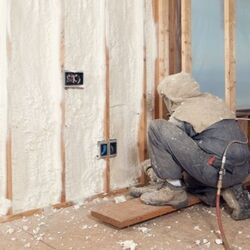 Is blown-in cellulose or spray foam better? This is one of the questions you might have as you look for the best one to insulate your attic. Insulation is crucial in Orlando and Central Florida for the comfortability and safety of your home. It prevents rotting from moisture and helps control the temperatures of your house. Also, it is a requirement in the building code. Here are three types of attic insulations available and effective in Florida: Spray Foam Insulation Spray foam has two types: 1. Closed-cell Closed-cell insulation for the attic is the best type on the market, and this is why:
The differences between the closed and open-cell foam insulation are:
However, it has benefits too:
So is blown-in cellulose or spray foam better? Spray foam insulation is better than batts and blown-in cellulose for home insulation. It costs more upfront but you save more on your power bill and enjoy a lifetime of comfort. Blown-in Cellulose Insulation Blown-in cellulose insulation is one of the types that are popular among homeowners. It has an R-value of 3.5, an excellent rate to keep your home comfortable. Advantages:
The downside of cellulose insulation
So far the question ‘is blown-in cellulose is better or spray foam?’, is clear. Spray foam stands as the best attic insulation. Fiberglass batts Insulation Fiberglass insulation is the most commonly used in Florida homes because it costs very little than the other insulation types. It has the lowest R-value of 2.5. However, it is practical, fire and water-resistant, and easy to install. The downside to fiberglass batts is the airtightness of attics with distinctive designs. It can leave spaces where air can sip through, reducing the R-value. In Conclusion When it comes to choosing which type of insulation to install for your attic, it comes down to your preference and the cost. With the options and information above, you will be in a better position to make a decision. At All Florida Insulation, we offer all the above insulation options and more. Is blown-in cellulose or spray foam better? That depends on your specific needs. We service Orlando, Windermere, Longwood, Winter Park, Lake Nona, and the surrounding areas. Visit our website and get in touch with our experts who will walk with you through the project. 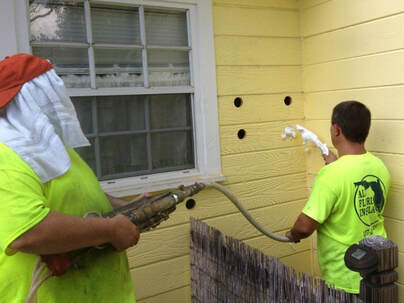
Are you wondering about how to insulate a wall without removing the drywall? Adding insulation into an already built house can get quite challenging as some of the best insulation types are ideally installed while constructing the home. However, the great news is that it is indeed possible to add insulation without having to remove the drywall!
Many homeowners realize a little too late that their home is under-insulated. It gets too warm in the summer or too cold during winter. Electric bills seem to be higher than expected all the time and rooms seem to have noise barriers at all. If you’re worried about the hassle and expense of having to remove your home’s drywall for you to add some insulation, you need not worry no more. For as long as you work with a trusted and reputable insulation contractor, this can be done properly and effectively. There are some considerations to keep in mind. First, you have to determine what type of insulation you need and where you need to install it. Holes can be cut into exterior walls to add blown-in insulation. Basement and attics, since they’re not necessarily living areas, can be insulated with spray foam. Especially when you will be drilling holes in to walls or using spray foam insulation, make sure that you hire a licensed insulation contractor. Not doing so can result in serious damage to your home if the person applying the insulation is not experienced or knowledgeable enough. Another great benefit of hiring a licensed contractor is that this professional can help you determine what type of insulation you need. You can expect expert recommendations and they can do the job safely and properly, too. Contact Us for Home Insulation in Orlando, FL
Now that you already know how to insulate a wall without removing the drywall, then it’s time to look for the best insulation contractor to help you do it! For your blown-in insulation or spray foam insulation needs in Longwood, Orlando, Maitland, Winter Park, and the surrounding areas, contact All Florida Insulation. We are a licensed insulation company with years of valuable experience and a full set of equipment so we can carry out all types of insulation jobs, big or small. Call us at (407) 410-FOAM (3626) to request a free quote.

Are you wondering how to soundproof a home office? A lot of people had no choice but to work from home during the pandemic. Many realized the importance of a soundproof home office. It is, after all, challenging to work when you are distracted by the noise of next-door neighbors, cars passing by, dogs barking, and more.
If you are planning to make changes around your home to soundproof your home office properly and effectively, know that it will be a lot of work. It isn’t cheap either. It’s good to know though that there is another option you can consider. When you need soundproofing to get rid of distracting noise that prevents you from focusing on work, then investing in a pair of noise-cancelling headphones can definitely help you out. Those with a noise-cancelling microphone can also block background noise when you are on a call. There are also applications or software you can use to further improve background noise cancellation on regular headphones with microphones. But when it comes to actually soundproofing a home office so you won’t have to worry about noise at all even without wearing headphones, then you might have to get work done. Some of the most effective ways to soundproof a home office include sealing holes. Keep doors and windows closed and if there are gaps in between them, you have to seal them to keep the noise out. You may also have to upgrade your doors if your current ones are made from thin materials. You should also add layers of insulation to block outside noise. Acoustic insulation such as those made with fiberglass insulation are excellent soundproofing materials. If you are want to get more than just soundproofing but also better home insulation efficiency, you should consider spray foam insulation as it has superior quality soundproofing features. Contact Us for Home Office Insulation in Orlando, FL
Now that you already know how to soundproof a home office, it is time to decide which of the above tips you will be putting into action. If you decide on insulating your home office, there’s no better contractor to call than All Florida Insulation.
We have been in the business of residential and commercial insulation for many years now and we take pride in the exceptional customer service we provide. We can insulate your home office or your entire home in Orlando, Maitland, Longwood, Winter Park, Deltona, Sanford, Windermere, Ocoee, Lake Mary, and the surrounding areas. Call All Florida Insulation at (407) 410-FOAM (3626) to request a free estimate today! 
If your attic has always been an “out of sight, out of mind” area of your home, then you are certainly missing out on a lot of storage and even extra living space opportunities. And if you are finally looking for ways on how to take advantage of your attic space, then you are certainly making a great move.
The attic is usually used as a storage space. Other homeowners find climbing up to the attic inconvenient, so they choose to clutter up the entire house instead and leave the attic as is. Today, let’s find out how you can make most out of all the space you have in the attic. Check out the tips below. Tips to Make Your Attic Space Useful
Declutter. If there’s plenty of clutter and junk in the attic, get rid of them if you can. Dispose of the things you no longer need, donate those that are still usable, or perhaps you can even sell some useful items you don’t like to keep anymore.
Insulate. The attic can get very hot and uncomfortable during the summer and extremely cold during the winter. Install proper insulation – and make sure you cover the insulation as needed! Install Proper Ventilation. Especially when you apply new insulation in your attic, it could be extra humid up there. So you must also make sure you have proper ventilation in your attic area. Repaint. A new layer of fresh paint can definitely make your attic a more attractive space – and you might even end up wanting to make it an extra living space. So after repainting, bring up some furniture and decorate the area as well. Install Proper Lighting. If you plan on using the attic often, perhaps as a meditation area or home office, then you must have proper lighting there too. Contact Us for Attic Insulation in Orlando, FL
Now that you already know how to take advantage of your attic space, then it’s time to move it! If you’re considering an insulation upgrade, contact All Florida Insulation. We are the go-to pros of residents and business owners all over Orlando, Maitland, Longwood, Winter Park, Deltona, Sanford, Windermere, Ocoee, Lake Mary, and the surrounding areas who need spray foam insulation and all other insulation services. Call (407) 410-FOAM (3626) to request a free quote.
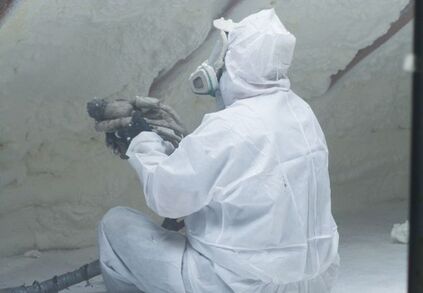
Florida can get very hot and humid almost year round. That is why it is best to install the best attic insulation for Florida climate to maximize its benefits and efficiency. You need to choose an insulation type with an adequate R-value that would be enough to keep your home comfortable no matter the type of weather outdoors.
In Orlando, for instance, the average minimum yearly temperature is placed at 72.5°F with the hottest months of June to September averaging between 81 to almost 83°F. Colder seasons are not exactly cold compared to other states with an average of 60.3°F experienced in January. The Importance of Choosing the Best Attic Insulation for Florida
When it is usually warm and humid in your area, you tend to turn on the air-conditioning for as long as possible. Also, your AC unit needs to work twice or thrice as much to keep your home cool all day and night long. Expect your energy bill to become higher than the usual. This can be prevented, however, when you install the right insulation for your home. Your home’s insulation will help trap the temperature inside so your AC doesn’t have to use too much power to keep the interior cool.
Among the insulation types you can choose from are spray foam insulation, injected foam, radiant barriers, blown-in insulation, and block foam insulation among many others. It is important to install the right type of attic insulation because most of the heat from outdoors are trapped in the attic. When the attic gets especially hot, the heat can travel to other areas of your home making you and your family feel uncomfortably warm especially during the day. The Benefit of Using Spray Foam Insulation
Spray foam insulation is one of the best choices for attic insulation for your Florida home. When applied properly, it can completely seal your attic so that no air comes in our out of this area. This prevents your air conditioner from having to work twice as much especially on hotter days. Spray foam can help decrease indoor temperature in your attic by up to 10 to 15 degrees!
Closed cell spray foam insulation has a higher R-value compared to open cell spray foam. The exact R-value depends on the thickness of insulation installed in your attic. It is always best to work with a licensed insulation contractor so you are well-informed on the actual R-value required to sufficiently insulate your attic area. Contact Us for Attic Insulation in Orlando, FL
The best attic insulation for Florida is spray foam insulation because of its efficiency and ability to seal all corners, no matter how narrow or small, so that temperature remains controlled in the attic. It is important, however, to work with a licensed and knowledgeable contractor to ensure that the process is done properly to maximize the benefits of this type of insulation.
If you are located in Orlando, Maitland, Longwood, Winter Park, or any of the surrounding communities, make sure you reach out to All Florida Insulation for your spray foam insulation needs for your attic. Contact us at (407) 410-FOAM (3626) to schedule an appointment and to request a free quote. 
Can I paint over spray foam insulation? This is probably one of the questions you have in mind if you’re looking for a way to make your newly insulated home aesthetically pleasing. It’s great that you’re doing some research first because the short answer to the question above would be yes, but it depends.
Previously, we wrote about covering insulation in the attic. Painting over spray foam insulation follows similar conditions. You first have to make sure that the paint you use won’t affect the efficiency and integrity of your spray foam insulation. You would also have to check with your local government’s building code to ensure that painting spray foam insulation is allowed. Many times, building codes specifically indicate a required cover or fire barrier over insulation that is exposed to living spaces. Therefore, if you will be covering the insulation material, painting it wouldn’t serve its purpose anymore. Painting Spray Foam Insulation Tips
We highly recommend working with an insulation professional if you are going to be painting over spray foam. Spray foam application is not exactly cheap and mishandling it could lead to inefficiency or even irreparable damage. So, make sure you’re consulting with a licensed insulation contractor to get expert advice.
If you have already decided to start painting, make sure you wait at least 24 hours or longer after the spray foam has been applied. The insulation material must be fully dried first. Do not use paint brushes or paint rollers. It is best to use spray paint as it is gentler compared to other paint application methods. You may also need to sand the foam material before beginning to paint so that the surface is even. Contact Us for Spray Foam Insulation in Orlando, FL
Hopefully, the above tips gave you an idea of what you should do when you decide to paint over spray foam insulation at home. For your insulation needs, contact All Florida Insulation for assistance. We install all kinds of insulation materials in Orlando, Maitland, Longwood, Winter Park, and the surrounding areas. Just call us at (407) 410-FOAM (3626) to get a free estimate.
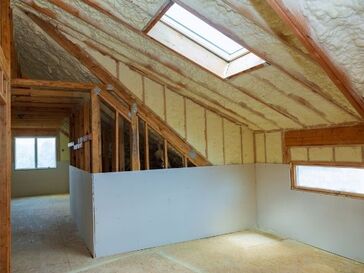
Should I cover attic insulation? This is probably one of the questions you have in mind as you climb up to your attic and once again got in contact with the fibers of your insulation. Not only does exposed insulation look unattractive, but one may also worry about it getting damaged overtime when it is unprotected. Furthermore, some insulation materials may be toxic.
However, covering insulation in the attic doesn’t seem necessary for some since the attic isn’t a living space in most homes. Homeowners don’t frequently stay in the attic and guests aren’t usually invited to come up to this space. There’s no immediate need to make it pretty. But aside from aesthetic purposes, some attic insulation materials are better covered. You just have to make sure you are choosing the right cover as doing this improperly can decrease the efficiency and effectiveness of your insulation. What Type of Cover Should I Use for My Attic Insulation?
If you will be covering attic insulation, the number one rule is that you shouldn’t cover it with another layer of insulation. This will cause all sorts of moisture problems that would ultimately damage the original insulation and possibly even the overall integrity of your home’s structure.
If your purpose when you decide to cover attic insulation is so you won’t touch the exposed insulation when up in the attic, you can easily use some twine or nylon cords to keep the insulation in place. Alternatively, you can use a piece of plywood or even drywall to conceal the insulation. You may also look into breathable home wrap materials that won’t trap moisture within the insulation. Contact Us for Attic Insulation in Orlando, FL
At All Florida Insulation, we will help you with all of your insulation needs. If you wish to cover your attic insulation after installation, just let our team know so we can give you our expert recommendations. We specialize in spray foam insulation and install all other insulation materials in Longwood, Winter Park, Orlando, and the surrounding areas. Contact us at (407) 410-FOAM (3626) to get a free quote.
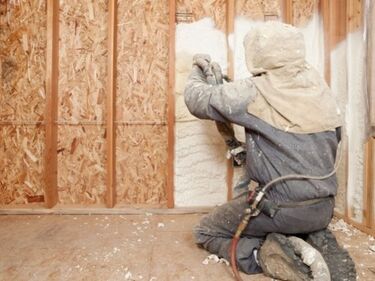
How much does it cost for spray foam insulation application or installation? Many homeowners are already well aware of the numerous benefits of spray foam insulation. This type of insulation is also known to increase the value of one’s home. It is a great investment that pays for itself over the years. However, it does cost quite a bit to install, or so they say.
The actual cost of spray foam insulation varies and it depends on several factors. There are two types of spray foam insulation – open-cell and closed-cell spray foam with open-cell spray foam insulation being the cheaper option at around 44 to 65 cents per board foot. Closed-cell spray foam insulation, on the other hand, costs around $1-$1.50. Of course, these prices change over the years and these costs are simply the actual material used. Spray foam insulation installation is not a DIY job. Many times, we’ve seen even the smallest mistakes resulting in expensive and time-consuming problems. Hiring a professional spray foam contractor to do the job for you may bring you to a total cost of about $2,500 on average. How Much Does It Cost for Spray Foam Insulation? Factors to Consider
When asking how much it costs for spray foam insulation, more often than not, it is best to reach out to a local contractor directly to get an estimate. Here are the usual factors considered to come up with a price.
Type of Spray Foam Insulation – As earlier mentioned, closed-cell spray foam insulation costs a bit more compared to open-cell spray foam. Size of Area to Be Insulated – Since material costs are priced per square foot board, the size of the area that needs to be insulated greatly affects the total cost of the project. Contractor of Choice – Contractors don’t usually have one standard price for all their services. Depending on the company you choose to hire, the total project cost may differ as well. Contact Us for Spray Foam Insulation in Orlando, FL
Now that you already have an idea of how much does it cost for spray foam insulation, it is time to contact the best company to help you out. For Longwood spray foam insulation, there’s no better company to call than All Florida Insulation. We also serve residential and commercial clients in Orlando, Winter Park, Maitland, Deltona, and the surrounding areas. Call us at (407) 410-FOAM (3626) to get a free estimate today!
|
Chris Curry
Chris has been an insulation professional for more than two decades, and has experience with all types of residential and commercial insulation products. His passion is green energy and effective insulation applications. Archives
April 2024
Categories
All
|
CALL: (407) 410-FOAM (3626)
SERVING ALL OF CENTRAL FLORIDA
SERVING ALL OF CENTRAL FLORIDA

 RSS Feed
RSS Feed
